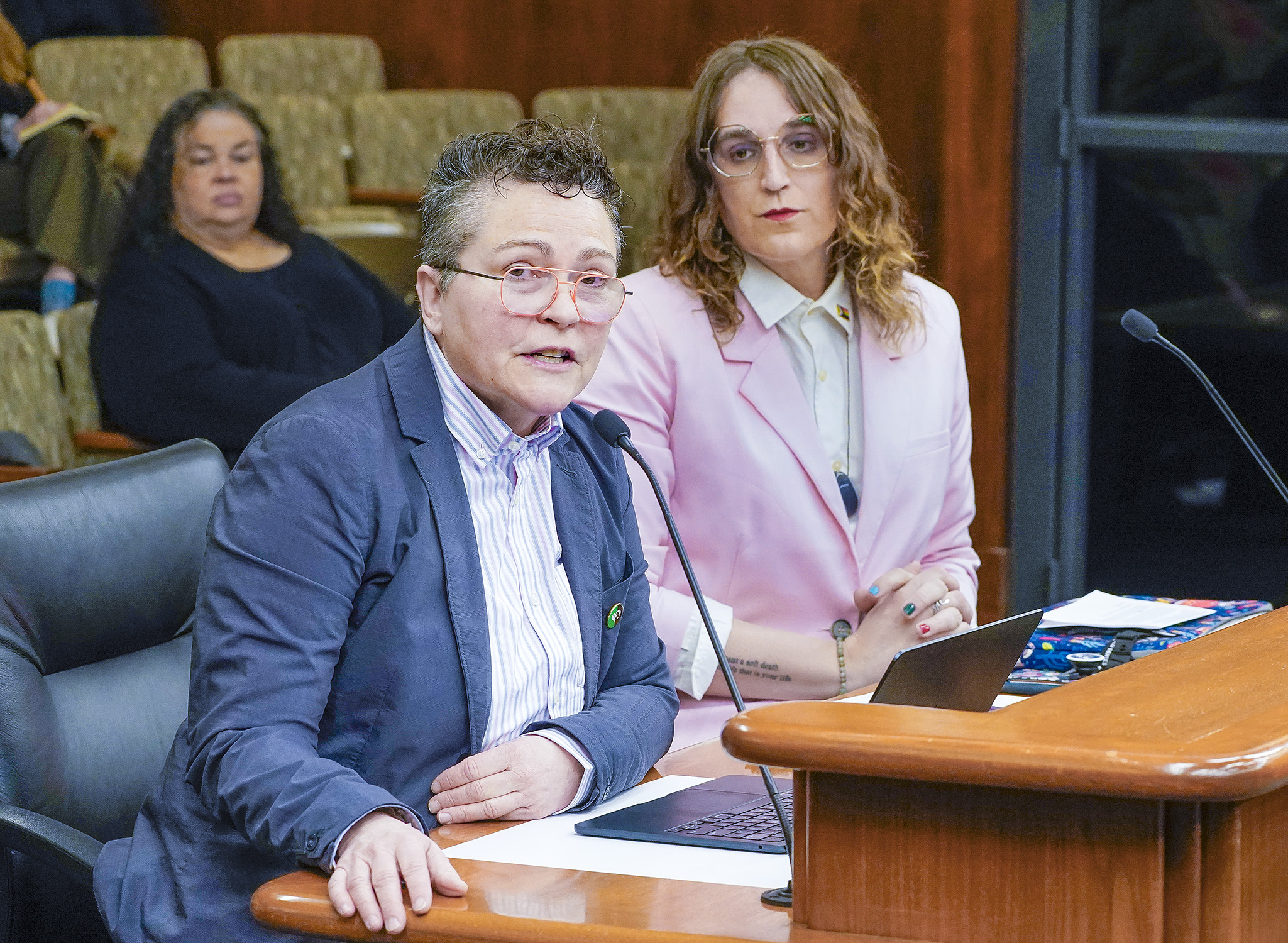Don’t go banning rainbows, says sponsor of bill that clears local government committee

A new state flag is scheduled to be flown over government buildings and schools throughout the state by this summer.
It came with some controversy with process and outcome.
Showing another colorful symbol without debate is the goal of an LGBTQIA community-backed idea.
Sponsored by Rep. Leigh Finke (DFL-St. Paul), HF4273 would prohibit state and local governmental units, charter schools, and most postsecondary institutions from removing or banning “rainbow banners, rainbow flags, rainbow posters, or any visual display of rainbows” from the jurisdiction’s property.
She emphasized it would not require rainbow items be displayed, nor supersede policies prohibiting all displays of things like banners or posters. “It just prohibits rainbows from being singled out.”
The bill was approved on a split-voice vote by the House State and Local Government Finance and Policy Committee Tuesday and sent to the House Floor.
“To those outside of the queer community it may seem trivial to legislate the definition and presence of rainbows, but in our community, depending on the circumstance, the value of a publicly visible rainbow on a doorway or window or classroom is literally impossible to overstate,” Finke said. “For many queer kids, a rainbow flag or sticker and the corresponding knowledge that some adult somewhere accepts you for who you are is the only affirmation they receive.”
Monica Meyer, political director for Gender Justice, said “several” school districts are considering a ban of rainbow flags “because these flags symbolize respect and inclusion for all, including trans and LGBTQ youth.”
Without being specific, Finke believes other symbols should be afforded similar protection, but emphasized this bill only reflects a request for rainbows.
Rep. Jon Koznick (R-Lakeville) warned a proverbial slippery slope could be created.
“Other people probably would be interested in having certain symbols that they hold deeply — they might be symbols, they might be virtue signaling, or they might be political — and if this were to pass would be establishing a precedent that might be troubling on other people’s free speech.”
Koznick further argued the bill would infringe on independence of schools having policies that prohibit political speech. “This moves towards that political speech, and it’s been upheld by the U.S. Supreme Court. … This bill needs a lot more work because it does infringe on some of those areas that we uphold for education to be independent of political activities.”
Countered Finke: “If you want to say nothing on the walls that might be interpreted as political by anyone then you can fully ban everything. I would hope that we wouldn’t do that, but we know it’s common practice to single out the rainbow.”
Related Articles
Search Session Daily
Advanced Search OptionsPriority Dailies
Speaker Emerita Melissa Hortman, husband killed in attack
By HPIS Staff House Speaker Emerita Melissa Hortman (DFL-Brooklyn Park) and her husband, Mark, were fatally shot in their home early Saturday morning.
Gov. Tim Walz announced the news dur...
House Speaker Emerita Melissa Hortman (DFL-Brooklyn Park) and her husband, Mark, were fatally shot in their home early Saturday morning.
Gov. Tim Walz announced the news dur...
Lawmakers deliver budget bills to governor's desk in one-day special session
By Mike Cook About that talk of needing all 21 hours left in a legislative day to complete a special session?
House members were more than up to the challenge Monday. Beginning at 10 a.m...
About that talk of needing all 21 hours left in a legislative day to complete a special session?
House members were more than up to the challenge Monday. Beginning at 10 a.m...